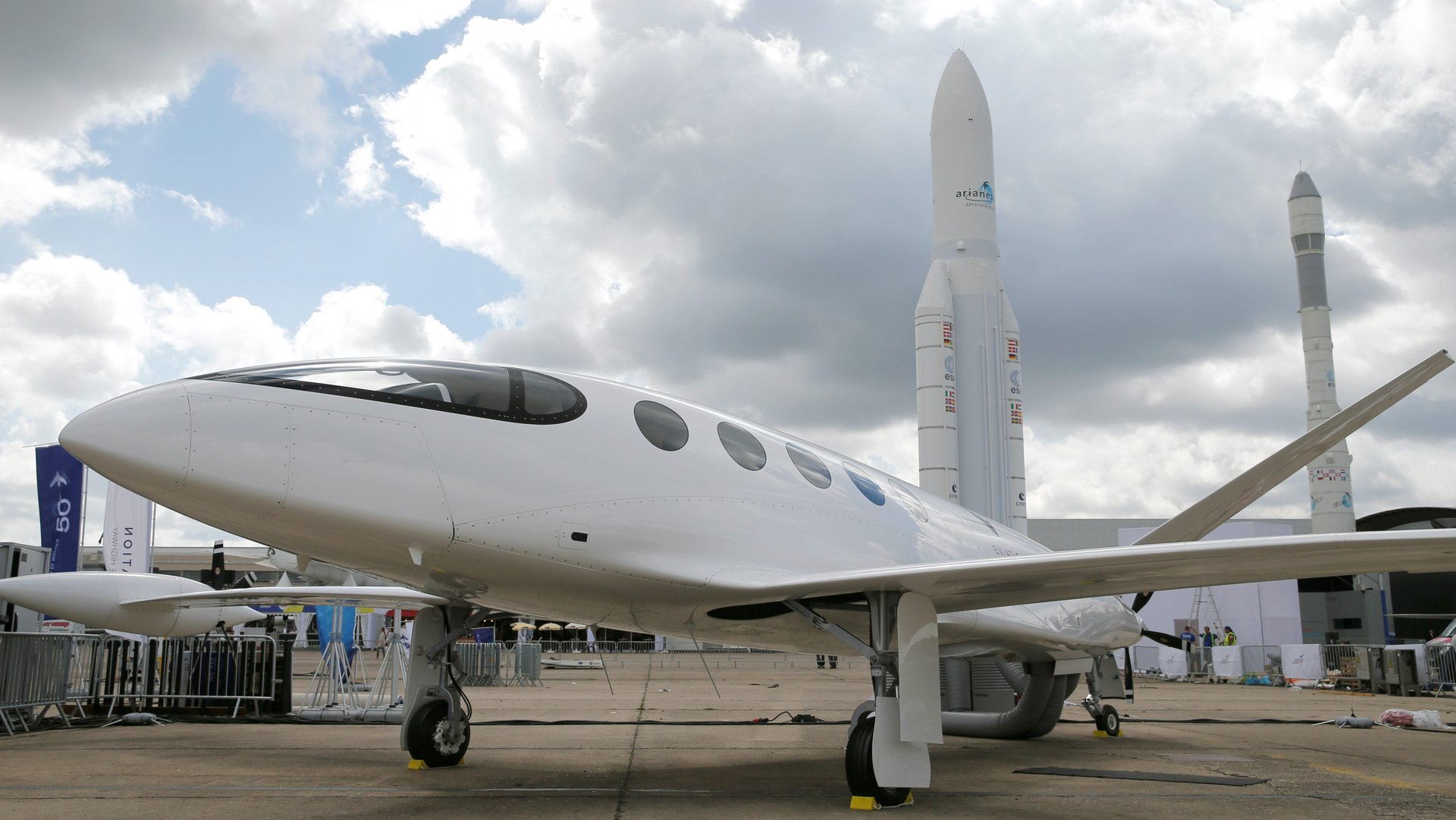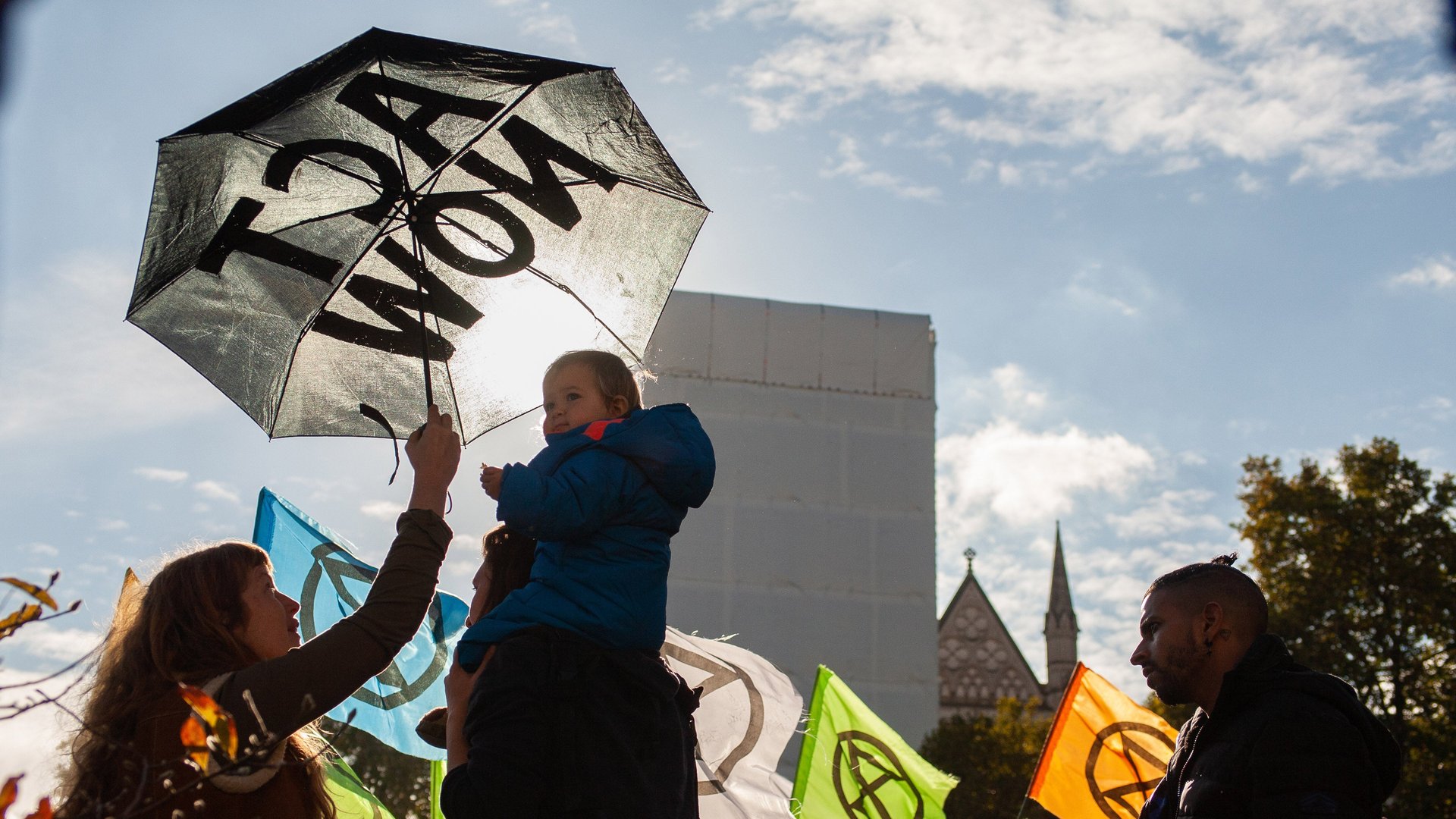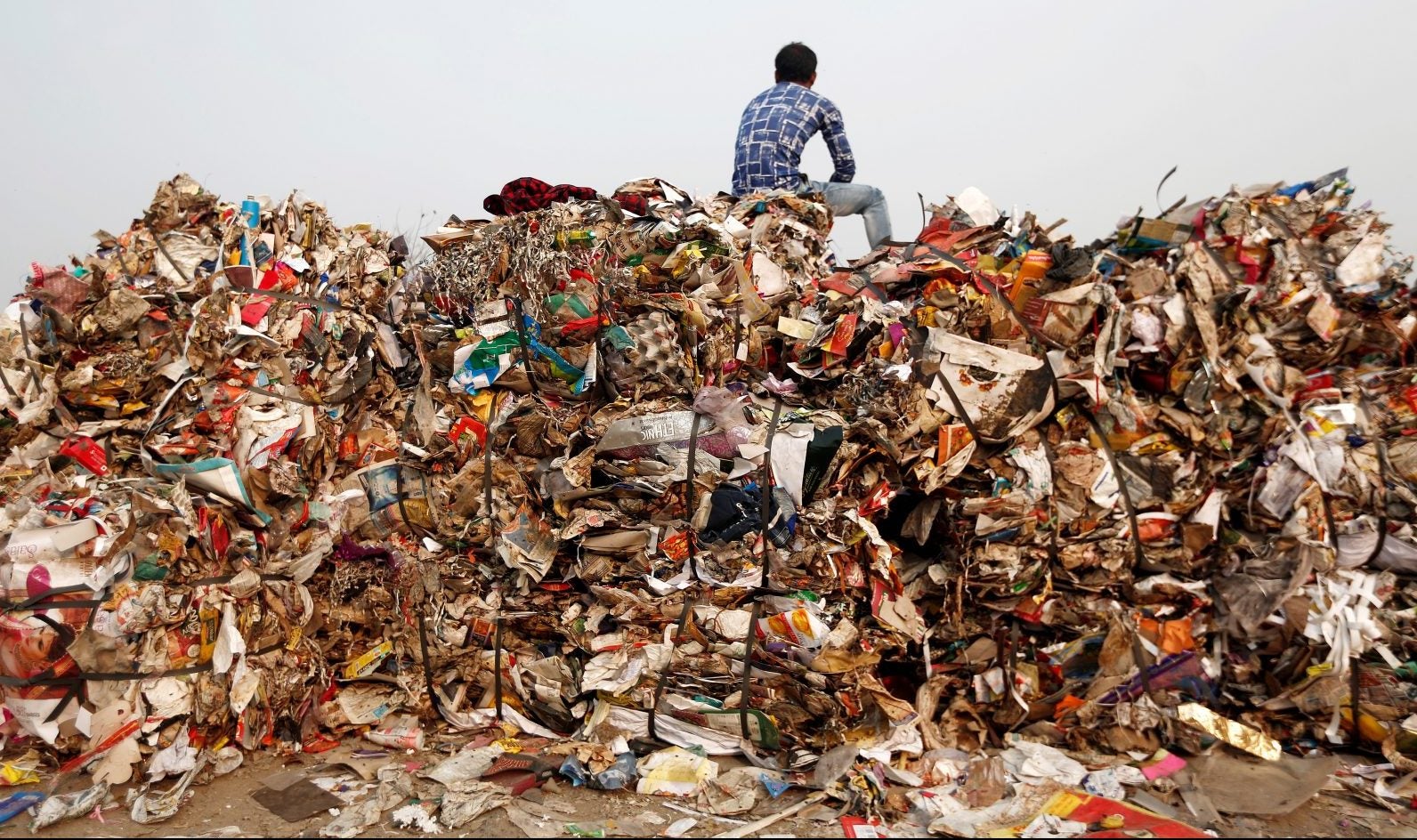The Race to Zero Emissions: electric planes, fewer babies, postmodern nihilism
Hello Quartz readers!

Hello Quartz readers!
Last week’s San Francisco meetup was a success. About a dozen of us warmed the benches of Southern Pacific Brewing until 10pm on Tuesday. “Great opportunity” and “Fun to get out of my comfort zone,” according to two participants.
The highlight of the evening for me was this: Siddharth Sridharan used to be a dissatisfied investment banker. He now works for an electric-car charging startup. He gives Quartz’s stories on energy and the environment some credit for helping him make the switch. “I never thought I’d work in clean energy, but thanks to you guys I’ve found a calling,” he said.
Here’s what happened over the past week that helped or harmed the world’s chances to cut greenhouse-gas emissions to zero.

🔽 Decreases emissions
1️⃣ Israeli startup Eviation will sell “double digit” numbers of its nine-seater all-electric plane that can travel up to 1,000 km (621 miles) to US airline Cape Air. The plane sports a 900 kWh lithium-ion battery—the equivalent of nine top-of-the-line Tesla cars. (To be sure, other deals announced at the Paris Air Show, the world’s largest aerospace event, will see 400 new fossil fuel-powered planes serving the travel industry.)
2️⃣ New York lawmakers approved a climate bill that will require the state to reach net-zero emissions by 2050. That makes it the 11th US state to have introduced or passed a bill to procure 100% carbon-free or renewable electricity, according to this map by Madison Freeman of Energy Impact.
3️⃣ In the first five months of 2019, the UK produced more electricity from low-carbon sources than it did from coal or natural gas. The trend is set to continue as the UK looks to phase out coal, expand its nuclear fleet, and boost the contribution of renewables.
4️⃣ As India grows its renewable power assets, the country’s utilities are starting to deploy smart meters. These could allow the debt-laden state-owned enterprises to cut down on labor costs and electricity theft. It could also encourage users to shift consumption patterns to take advantage of cheaper electricity, which may vary based on when the sun shines and the wind blows.
5️⃣ The UN has revised its population forecast for 2050 and 2100 to 9.7 billion and 10.9 billion respectively, which is 37 million and 309 million lower than previous estimates. The tweaks were made because birth rates are falling faster (paywall) than previously projected.
Stats to remember
As of June 20, the concentration of carbon dioxide in the atmosphere was 414.06 ppm. “If you burn a lump of coal, the greenhouse effect from the carbon dioxide released will, over its lifetime in the atmosphere, heat the Earth about 100,000 times more than the thermal energy released from burning that coal,” writes Stanford scientist Ken Caldeira.

0️⃣ Net-zero (for now)
1️⃣ This autumn, the UK will set up citizens’ assemblies on the climate emergency. The goal would be to bring together a representative set of the population to learn and debate climate issues—with, hopefully, a plan of action at the end of it.
2️⃣ Ted Nordhaus, founder of the Breakthrough Institute, has a scathing review of “This Changes Everything”-type environmentalism in a long essay. Choice quote: “It is a politics of protest and negation, of divestment, of ‘keeping it in the ground,’ and of degrowth. It is postmodern nihilism dressed up with the trappings of moral seriousness. The result is a radicalism that attacks the technofix while simultaneously demanding 100% renewable energy and rejects technocracy while demanding technocratic solutions of unprecedented speed and scale.”
3️⃣ Not a joke: Republican senators in Oregon are on the run because they don’t want the state to pass a climate bill. Governor Kate Brown has dispatched state troopers to bring missing senators back to form a quorum and legislate.
4️⃣ Nuclear round-up: China is set to build the first nuclear power plant featuring the homegrown Hualong One reactor—a rival to Europe’s EPR and the US’s AP1000 third-generation reactors—ahead of schedule, with operations set to being at the end of 2020. The country is also building four other Hualong One reactors, including one in Pakistan. The Flamanville EPR reactor in France, built by EDF, is facing further cost overruns and delays due to faulty welding.
What can I really do?
One of the most common questions environmental journalists are asked is: what can I do, as an individual, to fight global climate change? My colleague Zoë Schlanger asked Climate Twitter for a response and got many good ones. My top three: Talk about the climate crisis with the goal of converting apathy to action, fly less, and eat less meat.

🔼 Increases emissions
1️⃣ It may seem like we’ve turned the page on plastic, but the reality on the ground is different. In 2018, the world saw increased use of ethane, naphtha, and LPG—all used in the petrochemicals industry. Oil companies believe that the growing demand for petrochemicals could offset declines caused by the electrification of transport.
2️⃣ The US Environmental Protection Agency rolled back regulations that previously required states to reduce carbon-dioxide emissions, which would have inevitably hurt coal power plants. Analysts expect the move to be met with legal challenges from Democratic states.
3️⃣ Only 15% of the world’s top 500 companies have business plans that align with the Paris climate agreement (paywall). The greenest sector is technology and the least green is oil and gas.
4️⃣ The largest oil refinery on the US east cost, located near Philadelphia, exploded on Friday. Investigators are working to find out the cause. Owned by Philadelphia Energy Solutions, the refining complex processes 335,000 barrels of crude oil per day.
5️⃣ Poland, Hungary, Czech Republic, and Estonia ensured that the EU couldn’t adopt a 2050 net-zero emissions goal. These member states are seeking compensation for greening their fossil-fuel reliant economies.
Have a great week ahead. If you like this newsletter, share this link with friends and colleagues. Please send tips to [email protected].